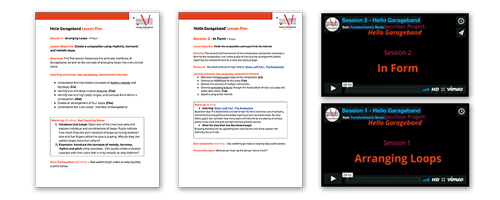Are you a classically trained musician who finds technology challenging? Let me tell you a story:
My father grew up in 1970s Hong Kong where he trained as a cook. He was very talented, and was soon working in the kitchens of the Hong Kong Hilton. In 1983, the Hilton’s head chef moved to a job at a Swiss hotel and took my dad with him. They found themselves in a ski resort in the Alps, far away from both their community and all the culinary ingredients they were used to – the five essential tastes of Chinese cuisine.
Fortunately, Switzerland also has food. It has great dairy products, chocolate and fresh veg. It has culinary ties with France and Italy. The cooking may have been less complex than they were used to, but the results were still delicious to someone with an open mind and a fundamental intuition about how to put a great dish together. Twenty years later and he still cooks Chinese for himself, but has also become an expert mushroom forager, blending cheeses for fondue, and drinking German beer. He believes that the fundamentals of food are the same whatever the style, and is able to adapt to the tools and tastes he is presented with.
We, as musicians and teachers who have been highly trained over a number of years, are the cooks. The new, technology-led sonic landscape we find ourselves in is Switzerland, and the musical tastes of our pupils require new tools and ingredients. Both ourselves and are pupils are lucky in that these tools and ingredients tend to be much easier to use than conventional instruments and music theory. To make this transition as enjoyable and successful as possible, we need to marry our skills to a playful, beginners mind as we approach this new challenge. With this attitude, a few hours (not years!) of practice, and effective resources, you will have your pupils engaged and productive in no time.


